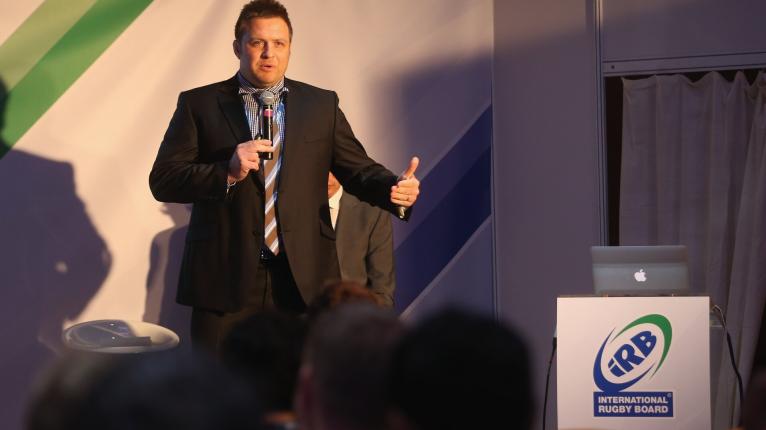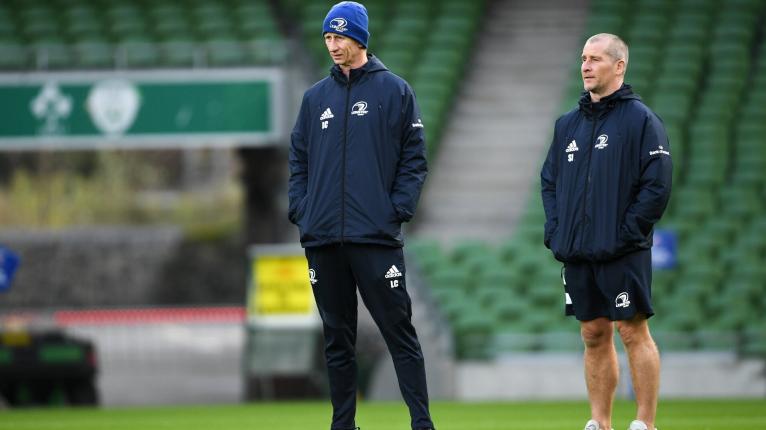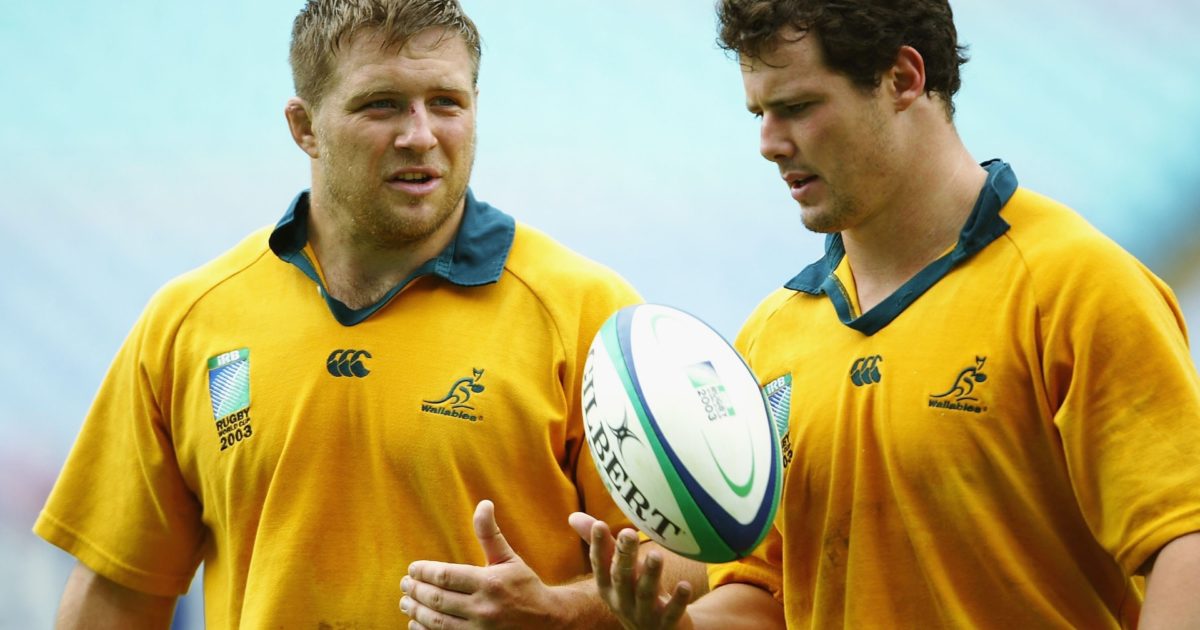'It's the Pro14's fault': Former Wallaby prop Ben Darwin crunches the data with some surprising results

Former Wallaby tighthead Ben Darwin now works as a data analyst and is co-founder of GAIN LINE analytics in his native Australia. In the first-part of his interview he explained that after having to retire at the age of 26, he found out through a process of trial and error that his calling was in data analysis and not coaching.
In the second-part of his interview he tells RugbyPass about the Pro14’s effect on Test rugby, how coaching and culture are not definitive keys to success and why England and France often underperform on the global stage…
“The one thing that has changed the world of rugby the most is probably the Pro14”, says Ben Darwin, “because it has allowed the Welsh and Irish and Scottish national sides to be more competitive”.
Usually when rugby fans refer to increased competitiveness as a consequence of the Pro14, they are referring to the so-called ability of the Irish provinces to compete in the Champions Cup. “It’s the Pro14’s fault” isn’t an argument that is often extended to the global stage.
Darwin has a specific angle on these things, however. Since being forced to retire in 2003 with a spinal injury, the 28-cap Wallaby prop has been on a fascinating journey through coaching to data analytics and now has a metric he believes is hugely overlooked in analysing success: cohesion.
His work in this field has led him to a number of interesting conclusions. Coaching and culture, he believes, are not especially relevant. Teams with an objectively bad culture succeed all the time, he says. And he concludes that, “there aren’t any coaches that over perform – ever”. But the correlation between cohesion and success is so strong that Darwin believes it is actually causative.
“If you make three changes to the team, when you lose a game by 20 points or more, the chances of winning next week are 34%… if you make no changes, it’s 49%”
– @bendarwin takes @rhigarthjones on a trip through analytics and their influence ???https://t.co/E1kkhBGROT
— RugbyPass (@RugbyPass) June 23, 2020
GAINLINE analytics, the data analytics company he co-founded, has two metrics for measuring cohesion: Team Work Index (TWI) and the Key Cohesion Markers (KCM) that mark “the quantity and intensity of linkages within a team”. The higher the cohesion number is, the more likely the team is to be sustainably successful (their metrics are applied across sports and industries).
So far, so straightforward. Partnerships matter all over the field. A halfback pairing that plays with each other week-in, week-out at club level is likely to translate their relationship well into Test level. The same goes for a midfield pairing, or a front row.
But Darwin’s conclusions stretch considerably further. The response to a team playing badly, he suggests, is to play the same team next week. And the next week. And the week after that. He argues that, “the most important thing in the short term is to actually understand what you have in front of you: in chaos, great players can look terrible. As an organisation, in the long-term, the only way to win is through long-term stability.” Even if it means losing in the short-term, he adds. “The only way to win is maintain stability and lose, and that’s where teams get unstuck.”
Warming to his subject, he adds: “Teams who have settled get time to work on the extra stuff and often times the extra stuff gets regarded as causative and it’s actually not. For example, we looked at the study, “Tactile Communication, Cooperation and Performance: An Ethological Study of the NBA”, which assessed the impact of touching teammates on performance. Many teams have been trying to introduce touch into their practice with little to no impact.

“What is most likely taking place is not causative but correlative: those that trust each other, through shared experience will be comfortable to touch each other, but they will also know each other’s role and have a stronger shared tactical understanding.” Too often, he says, we see outcomes of stability as causative rather than the stability itself.”
“Back to the Pro14 and its impact on world rugby. Having only four sides to pick from, for Ireland and Wales, and only two sides, for Scotland, has massively increased the cohesion figures for those three countries and allowed them to compete on the global stage in a way they had struggled to previously.”
It’s the reason why England and France often underperform in Rugby World Cups, Darwin believes. “The two unions have the biggest player bases and the most money – but it doesn’t translate into easy success because of the diversity of their domestic leagues. It can have an impact, which you can see in the women’s Six Nations, where England and France are entirely dominant over their amateur counterparts.”
When the playing field is more level, however, those things don’t give you the edge. “The long and medium-cohesion that teams like Ireland, New Zealand and Wales have gives them an advantage in the early stages of a tournament. As the tournament progresses, however, the short-term cohesion factor comes into play, allowing England and France to catch up and – on occasion – pull away.”
The biggest secret about great teams is there is nothing special about the players and nothing special about the coaches. It’s the system and the process.
— Ben Darwin (@bendarwin) February 2, 2020
With the exception of the second pool match against the USA, Eddie Jones selected almost the exact same starting XV in every England game during the 2019 Rugby World Cup. They were outplayed in the final but the semi-final victory over New Zealand was a breath taking performance with a team that exemplified the cliché of a well-oiled machine.
Italy are another example that Darwin highlights. “For years they have struggled to catch up to their tier one peers, whether it’s the international side in the Six Nations or domestically. In the past few seasons, however, Benetton have had one of the most improved cohesion numbers in Europe – and the improvement on the field has been tangible. It is a slow process, Darwin emphasises, but Italy should start to see the fruits of that stability at domestic level.
Elsewhere in the Pro14, Darwin opines that Leinster are a side who are well-known for the high-level of rotation in their matchday squads. In fact, they have the highest number of players used so far this season. Moreover, they seem to bring through young players with ease. How does that tally with Darwin’s deep-dive analysis?
“Leinster is a system”, he explains. “It’s an extensive system but it’s pretty well put together. You’ve got the Leinster first team, the academy, the schools, and it all works as one fully-functioning system. Each time you need to replace a player with a younger model, they’ll know exactly what is required of them.. The long-term cohesion at Leinster is so strong that it frequently outweighs the short-term cohesion of other sides.”
Stuart Lancaster, the Leinster coach, has worked with Darwin in the past and he frequently talks about the importance of cohesion and aligning the different tiers of the Leinster system. There’s a top-down factor that Darwin notes that Leinster exemplify.

“We did a study and the academy’s main driver is not the strength of the kids coming through the system. It’s the stability of the team above it.” The Dragons, he notes, have had a number of exciting young players come through their academy for years but the first team’s performance hasn’t improved very much until this season because the system wasn’t stable enough for those players to come through and progress.
He makes similar observations about the Gallagher Premiership. The two teams with the highest cohesion numbers are Exeter and Saracens. Not only are they the two outstanding sides of the past few seasons, but they are also two sides who have had noticeable success integrating academy players into the senior team.
But, Darwin insists that it’s the unique team environment cultivated that creates a successful side. “A lot of those players, if you put them in a different team, if they’d played at Bristol, for instance, it might not be the same.”
Today would be Dan Vickermans 41st birthday. My favourite memory was the look on the faces of the Bulls players when they realised that calling in Afrikaans was not going to work against Big Vicks.
— Ben Darwin (@bendarwin) June 2, 2020
“It’s a term called the Bayern Munich mirage which basically means that if you keep a bunch of players together for an extended period of time, then each player will appear to be functioning as a highly-skilled component of that team. And so what starts to happen is that the market starts to overvalue those assets but when they move, they’re not necessarily the player they were because they’re not in same team environment they thrived in.”
“High quality players look to be underperforming in low cohesion environments”, he concludes. “And success is built slowly, based on stability”.
Darwin’s theory chimes with Jurgen Klopp’s uber-successful Liverpool side and rugby would do well to take on board his learnings in a period of worrying instability.
























































